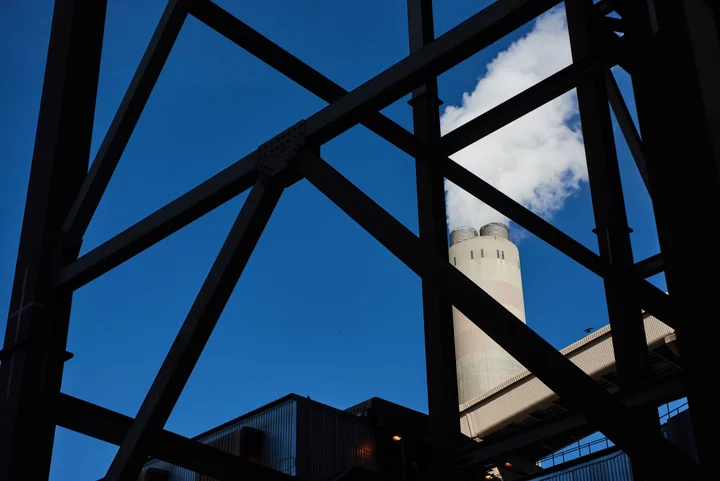Standard Bank Group Ltd., Africa’s biggest lender by assets, defended it’s investment in fossil-fuel projects, saying tthe continent’s energy needs have to be balanced with climate concerns.
The Johannesburg-based bank’s exposure to coal mining, oil and gas and power generation from fossil fuels rose 21% last year to 119.4 billion rand ($6.5 billion), according to Just Share, a Cape Town-based shareholder activist organization. While that’s almost five times its exposure to renewable energy projects, lending to green-power initiatives rose 84% over the year.
“It is not possible for Africa and many of the African countries to ignore the shortage of electricity supply,” Kenny Fihla, chief executive officer of Standard’s corporate and investment banking unit, said in an interview last week. “Today’s challenges are not going to be resolved overnight and therefore a much more balanced approach is required.”
Standard and other banks are coming under increasing scrutiny on the continent for lending to new projects that will extend the use of fossil fuels. At the same time, they are under pressure to help fund nascent oil and gas fields from Mozambique and South Africa to Senegal as governments defend the right to develop their natural resources on a continent that accounts for only 4% of greenhouse gas emissions.
“There is no factual basis for Standard Bank’s insistence that new fossil fuels are required to support development in Africa,” Just Share said in a response to queries. “The bank’s position on this issue is driven by its vested interests in fossil-fuel financing, and its relationships with African governments intent on ramping up fossil-fuel development.”
TotalEnergies SE’s proposed East African Crude Oil Pipeline that would run from Uganda to the coast in Tanzania has been a particular focus for 260 organizations that have asked banks to shun the project, arguing that it will harm wildlife habitats, impact communities and cause emissions to rise. While Standard Chartered Plc last month said that it isn’t involved in the financing of the line having earlier expressed an interest, Standard Bank is in talks to provide funding.
The social and environmental impacts of the project, that has been estimated to cost $5 billion, are still being considered, Fihla said. Standard Bank CEO Sim Tshabalala in a November interview said a decision on its involvement was imminent.
“Oil development in Uganda will be transformational to the GDP of that country,” Fihla said. “We will take as long as is necessary.”
--With assistance from Antony Sguazzin.

